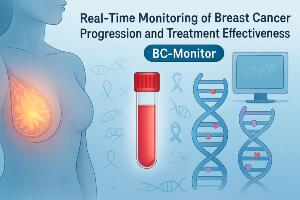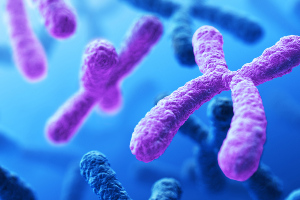News
AI Meets Oncology: Tailoring Cancer Treatments with MMRDetect
29 April 2021 | Researchers at the University of Cambridge developed the MMRDetect algorithm, which identifies tumors with mismatch repair deficiencies using data from the 100,000 Genomes Project. This innovation enables clinicians to personalize immunotherapy treatments by targeting genetic weaknesses in tumors. By leveraging CRISPR-Cas9 and whole-genome sequencing, the study revealed critical DNA repair genes and their unique mutational signatures. This breakthrough could significantly improve survival rates by optimizing treatment strategies for various cancers.
BC-Monitor: Towards a Routinely Accessible Circulating Tumor DNA-Based Tool for Real-Time Monitoring Breast Cancer Progression and Treatment Effectiveness
16 April 2021 | We are pleased to announce that our BC-monitor, a breast cancer-specific ctDNA diagnostic tool, is now published. This innovative tool effectively detects preclinical metastases and relapses earlier than conventional methods. It identifies evolving mutations in real-time, revealing new pathogenic variants in follow-up plasma samples not found in primary tumors or baseline samples. By monitoring disease progression, this approach enhances treatment strategies, potentially improving therapy effectiveness significantly.
Study of “exceptional responders”
28 March 2021 | In a comprehensive analysis of patients with cancer who had exceptional responses to therapy, researchers have identified molecular changes in the patients’ tumors that may explain some of the exceptional responses. The results demonstrate that genomic characterizations of cancer can uncover genetic alterations that may contribute to unexpected and long-lasting responses to treatment, according to the researchers.
Fighting Cancer with Personalized Vaccines
28 March 2021 | OncoDNA and myNEO Join Forces to Unlock the Power of mRNA Therapeutics. With the global health crisis, the field of mRNA therapeutics has been moving faster than ever before. The technology has proven its worth and the COVID-19 mRNA vaccines have sparked considerable enthusiasm to develop cures against the world’s deadliest diseases.





